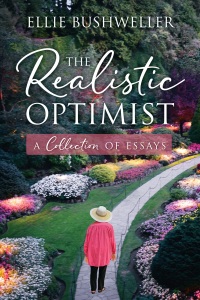
OFFICIAL DESCRIPTION*:
Stella wasn’t like all the other stars in the skies above Bethlehem. She was a four-pointed star in a five-pointed world, and the other stars teased her because of it. Then one day, the stars heard an important event was about to happen-and God would choose one star to play a crucial role.
Could that star be Stella? Not if the other stars get their way, and they will do anything to stop her!
Stella’s story shows us that often the ones considered different in the world are the ones who shine the brightest through their faith, hope, and love.
Stella the Rejected Star was written by Marc McCormack when he was eleven. Almost forty years later, Stella’s story has turned out to be his son Brady’s story. Brady, who is blind and nonverbal with autism, navigates his way through the world as both a star who has sometimes been rejected, and one of the brightest-shining ones.
Set against the first Nativity, Stella the Rejected Star is more than a Christmas story and is for everyone, especially those young readers with four points in a five-pointed world.
Stella’s story is the perfect one to teach children the importance of empathy and acceptance. If your child loves Christmas and stars, even mischievous ones, they will love Stella the Rejected Star!
Some of the proceeds from the sale of this book will be donated to autism-related charities.
REVIEW:
Once upon a time ….
The first time I read Stella the Rejected Star, I found myself humming “Rudolph the Red-Nosed Reindeer” aloud to myself. There are definitely some parallels between the stories of Rudolph and Stella––bullying by one’s peers, physical difference as a subject to be grappled with, a sort of “inspecting of the troops” or competition to guide an important process, and a message involving the triumph of the innocent over the cruel––and I think this parallel provides a unique and interesting starting point for discussions between parents (or grandparents, or caregivers) and young children.
How are these stories similar? It certainly doesn’t hurt that both Rudolph and Stella literally as well as metaphorically shine brighter than their peers, or that when Stella and Rudolph are both brought to the attention of God and Santa respectively, they take the high road and refrain from punishing their peers, even though they have acquired the power to do so.
(A quick aside: I still feel uncomfortable about having put Santa into the same sentence as God, particularly since I grew up in a household where the secularization of Christmas was a regular discussion. Whatever your or my personal stances might be on this particular depiction of the divine, I think it’s pretty safe to assume we’re all aware that the Nativity story occupies a sacred and beloved space in many households around the world, and I definitely do not want to imply I do not take the faiths of my friends, family, and neighbors seriously. I do think it’s important to specify that this book resonates specifically with mainstream Christianity as experienced in America, to prevent confusion.)
How are these stories different? Well, we’ve established that God is not Santa (and vice versa). And while Rudolph’s mission is one of spreading good cheer, Stella’s is to lead the shepherds and wise men to the newborn Jesus. McCormack also distinguishes his story with an added twist: in Stella the Rejected Star, faithfulness magnifies a star’s light, while the bully stars discover that their unkindness leads to a loss of this same light. Not only does this provide an opportunity to talk about bad behavior and bullying with kids, but it also introduces the concept of faithfulness and the relationship between faithfulness and behavior.
I find it incredible that an 11-year-old wrote this story, but that’s the background: McCormick wrote it as a boy and published it in honor of his son Brady, who has an autism spectrum disorder (ASD). That Brady was himself was a preemie and only surviving twin underscores the importance of this story, both to McCormick, and to those who learn from his picture book. Beyond the value of teaching children to empathize with and be kind to those who stand out for their differences, there is another moral to this story. Hardship, McCormick hints, provides a backdrop against which both heartbreaking and incredibly beautiful stories can play out. All of this in 32 pages, half of them Seth A. Thompson’s colorful and evocative illustrations. I can’t imagine a better way for families of faith to finish out 2020 than with a story of hope, faith, and maintaining joy through hard times.
You can find another detailed review of Stella the Rejected Star on the Readers’ Favorite website, reviewed by Emily-Jane Hills Orford. It is encouraging to me personally that other highly-rated reviewers have begun to pick up on McCormack’s wonderful story.
IN SUMMARY:
Stella the Rejected Star is a sweet and wholesome picture book for those looking to re-invest the holiday season with the magic of love and kindness present in the Nativity story. Marc McCormack’s story and Seth A. Thompson’s illustrations combine to create what will quickly become a modern classic for English-speaking Christian families.
WHERE TO BUY?
You can find Stella the Rejected Star wherever good books are sold, including Bookshop.org, Barnes & Noble and Amazon. You can also find out more about Marc McCormack’s work on the book’s Outskirts Press author page.
WHAT NEXT?
There are several more children’s books in my TBR pile for me to get through before the end of 2020, with my next review scheduled for the afternoon of January 1st. I can’t imagine a better way to start off a new year than with a good book!
I received a copy of this book in exchange for an honest review.
* Courtesy of Amazon book listing.





